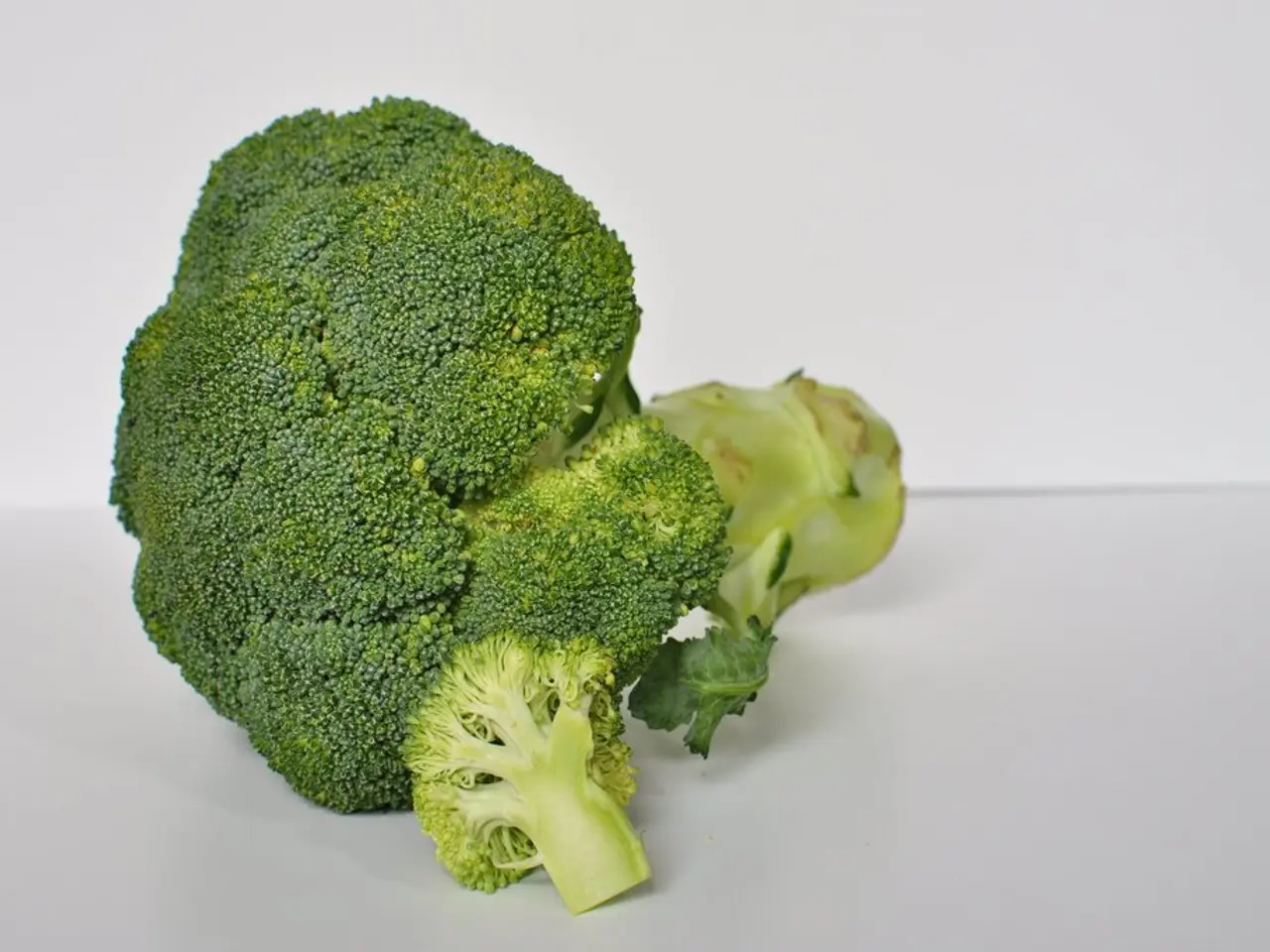Benefits, Nutrition, and Suggestions for Broccoli Consumption: A Comprehensive Guide
**Broccoli: A Nutrient-Packed Superfood for Optimal Health**
Broccoli, a member of the cruciferous vegetable family that includes kale and cauliflower, is a veritable treasure trove of nutrients and health benefits. This humble green vegetable is brimming with essential vitamins, minerals, and antioxidants, making it an ideal addition to any balanced diet.
Rich in Vitamins and Minerals
Broccoli is a powerhouse of essential nutrients, providing an array of vitamins such as C, E, K, and folate, as well as minerals like potassium, magnesium, and calcium. It also contains antioxidants like beta-carotene, lutein, and zeaxanthin, which contribute to its impressive health benefits.
High Fiber Content and Anti-Inflammatory Properties
The high fiber content of broccoli promotes regular bowel movements and supports a healthy gut microbiome, which is crucial for digestion and overall health. Additionally, it contains compounds like sulforaphane that help reduce inflammation, aiding in the management of chronic diseases such as heart disease, diabetes, and arthritis.
Cancer Prevention and Cardiovascular Health
Broccoli's rich content of glucosinolates, sulfur-containing compounds, exhibits anti-cancer properties by modulating oxidative stress and inflammatory damage in cells. Furthermore, the antioxidants and anti-inflammatory compounds in broccoli improve cardiovascular function by reducing oxidative stress, lowering blood pressure, and potentially improving lipid profiles.
Detoxification Support and Eye and Bone Health
Cruciferous vegetables, including broccoli, assist the liver in detoxifying hormones and eliminating toxins from the body, contributing to overall health. Antioxidants like lutein and zeaxanthin found in broccoli protect eye tissues, while vitamin K supports bone strength.
Weight Management
Broccoli, being low in calories but high in fiber and antioxidants, aids in weight loss and maintaining a healthy metabolism.
Lower Risk of Type 2 Diabetes, Atherosclerosis, and Cardiovascular Disease
A high fiber diet, including broccoli, may lower the risk of type 2 diabetes, as shown in a 2018 study. Older women whose diets are rich in cruciferous vegetables, including broccoli, have a lower risk of atherosclerosis, according to a 2018 population study. Additionally, a 2017 study found that people who eat the most fiber have a lower risk of cardiovascular disease and lower levels of blood lipids than those who consume little fiber.
In summary, incorporating broccoli and other cruciferous vegetables into your diet supports digestive health, reduces inflammation, protects against cancer and cardiovascular disease, supports detoxification, and contributes to eye and bone health, making them excellent components of a balanced diet.
- The system of antioxidants found in broccoli, such as beta-carotene and lutein, also support skin-care and immune health, as demonstrated by scientific research.
- In addition to its numerous health benefits, eating broccoli may aid in fitness-and-exercise performance due to its bipolar effects on the body's antioxidant and inflammatory responses.
- For optimal health-and-wellness, it is suggested to consume a wide variety of vitamins, minerals, and antioxidants, regardless of whether they are found in broccoli or other nutrition sources.
- The predictive power of medical-conditions studies suggests that regular consumption of broccoli may help prevent depression by boosting the immune system and reducing oxidative stress.
- Beyond cancer and cardiovascular health, incorporating nutrient-rich foods like broccoli can also contribute positively to one's digestive-health, aiding in the prevention and management of various medical-conditions.
- Furthermore, the compounds found in broccoli may play a role in cancer prevention and the management of other nutrition-related medical-conditions, such as cardiovascular health, digestive health, and even certain skin-care concerns.
- Whether you are trying to maintain a healthy weight, lower your risk of type 2 diabetes, or improve your fitness, incorporating broccoli and other superfoods into your nutrition regimen is an excellent start to reaching your goals.
- Consuming a diet rich in antioxidants from broccoli and other cruciferous vegetables may have cancer-fighting and heart-healthy benefits, according to research on antioxidant-rich foods and cancer prevention.
- To achieve optimal health and wellness, individuals should embrace a holistic approach that includes maintaining a balanced diet, engaging in regular fitness-and-exercise, practicing self-care, and addressing underlying medical-conditions with the guidance of healthcare professionals.




